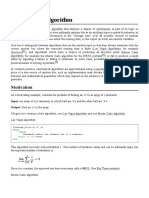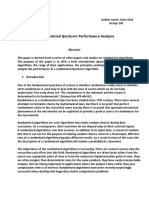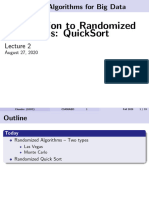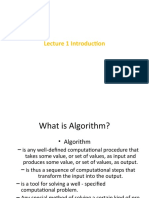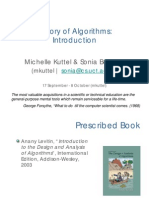0% found this document useful (0 votes)
23 views2 pagesRandomized
Randomized algorithms utilize random numbers or decisions to solve problems, allowing for potentially simpler or faster solutions compared to deterministic algorithms. They may yield different results for the same input but often maintain a high probability of accuracy. An example is a randomized approach to finding the minimum in an array, which can be more efficient than checking every element.
Uploaded by
202300327Copyright
© © All Rights Reserved
We take content rights seriously. If you suspect this is your content, claim it here.
Available Formats
Download as DOCX, PDF, TXT or read online on Scribd
0% found this document useful (0 votes)
23 views2 pagesRandomized
Randomized algorithms utilize random numbers or decisions to solve problems, allowing for potentially simpler or faster solutions compared to deterministic algorithms. They may yield different results for the same input but often maintain a high probability of accuracy. An example is a randomized approach to finding the minimum in an array, which can be more efficient than checking every element.
Uploaded by
202300327Copyright
© © All Rights Reserved
We take content rights seriously. If you suspect this is your content, claim it here.
Available Formats
Download as DOCX, PDF, TXT or read online on Scribd
/ 2
















